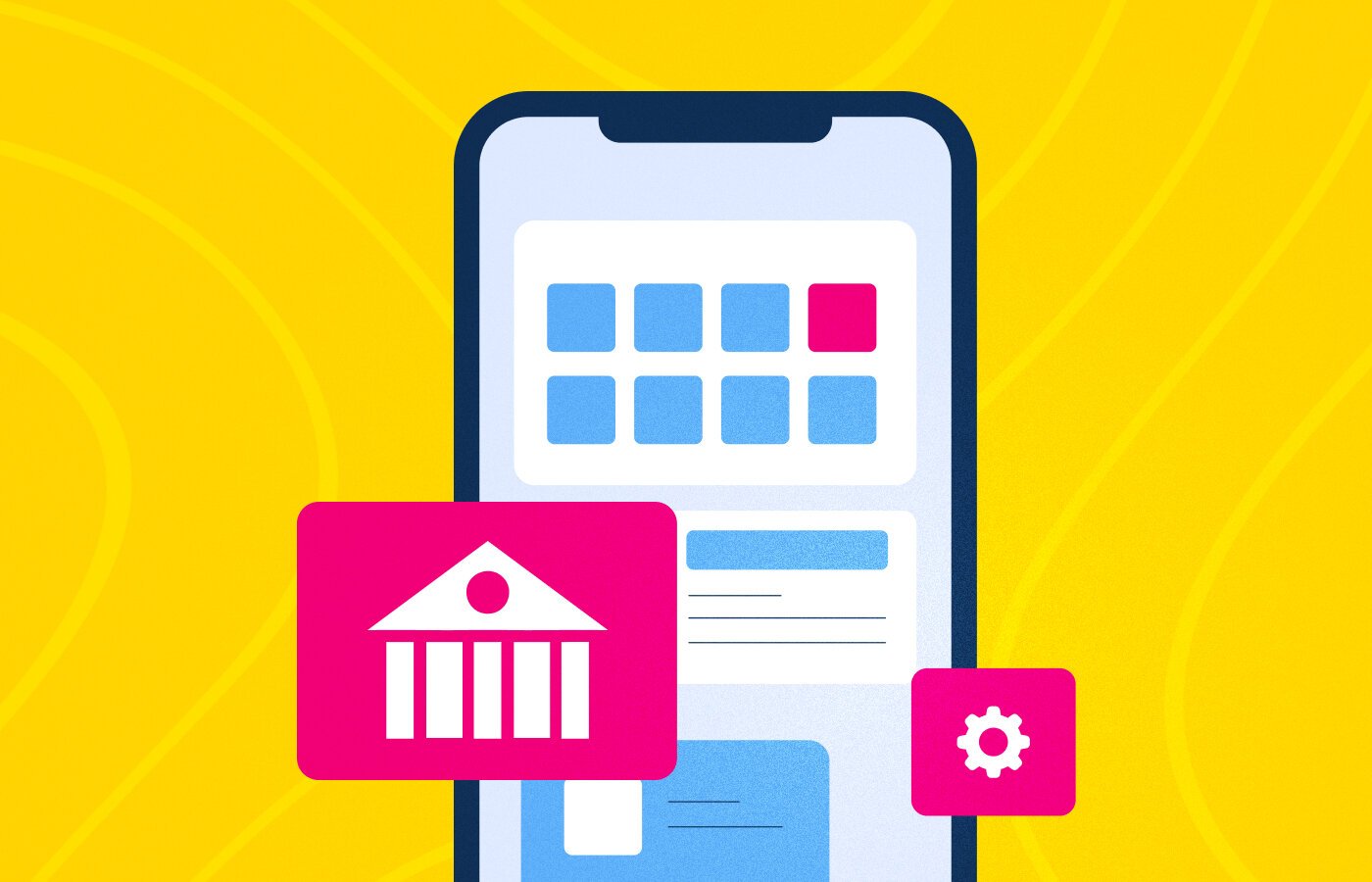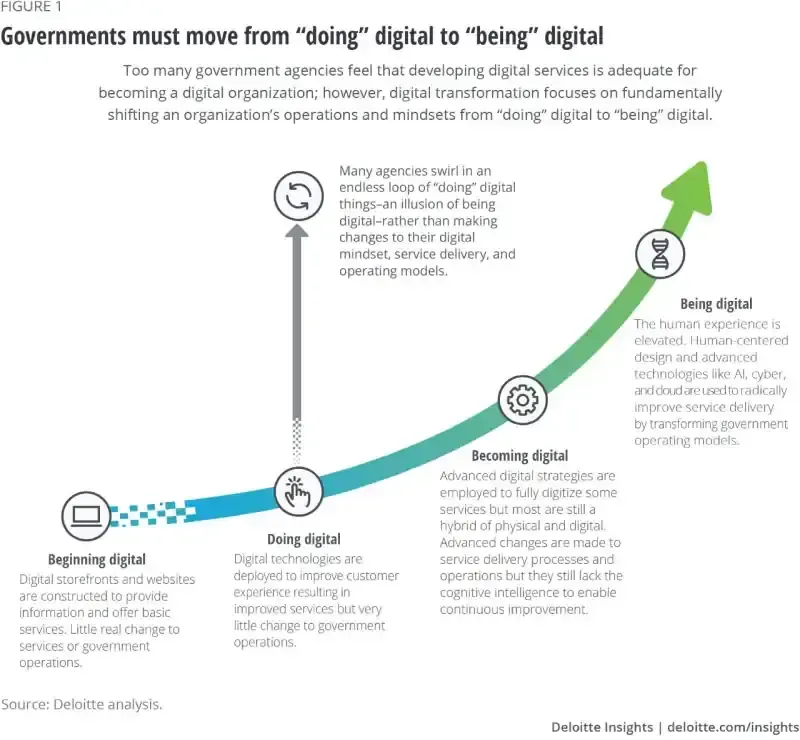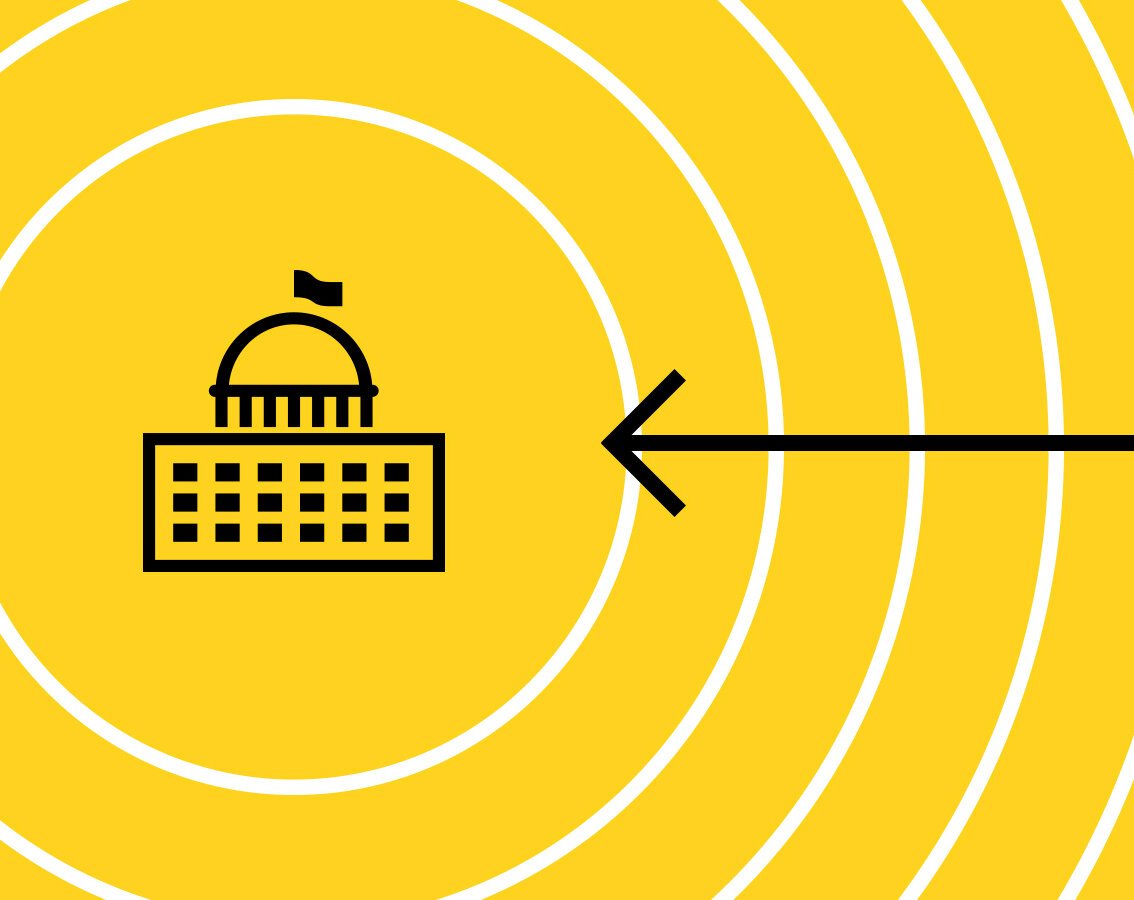blog
How Apps Can Help Strengthen Government-Citizen Relationship
By Mohan S Apps May 12, 2023

The burgeoning of smartphones has fostered a new industry – mobile apps. The influence of it is such that around 90% of smartphone time is spent using mobile apps. In other words, people spend over three hours on their phones daily, with power users regularly clocking screen times above 8 hours. Governments are already embracing digital transformation.
They can further their cause by using mobile apps to their advantage and gain citizen engagement using mobile apps.
Would you like to learn about Top Driving Trends in the Government?
Benefits of Different Types of Apps Promoting Citizen Engagement
Government apps can be designed to serve a wide range of purposes, from providing access to public services and information to promoting public safety and emergency preparedness. Each of these app types serves a unique function and helps to enhance government-citizen interactions in different ways:
Information-Sharing Apps
Information sharing apps in government are software applications designed to facilitate the exchange of information and data between government agencies, officials, and the public. These apps provide a secure platform for sharing sensitive information, such as emergency alerts, crime reports, public health updates, and other relevant data. Information sharing apps by governments can help the governments:
Increase trust & transparency: With government data made available to the public, citizens can understand the workings of government - operations, taxpayer dollars usage, etc. Apart from building trust, this transparency can help them decide if the leaders are doing the right thing.
Promote public education: There can be no better way than to share the developments in a city by putting them up on a mobile app for the public to read. Once the public can access the requisite information, they can offer valuable feedback to help better the developments.
Give easy access to information: Citizens can find whatever information they need through the app easily and quickly. They won’t have to navigate complicated government websites, make time-consuming phone calls, or visit government offices. For Example: In the Republic of Korea, GoodPy, a smartphone-based virtual assistant, makes it super simple for citizens to get information on public services.
Promote economic growth: Open government data can be used to create new products, services, and applications that benefit society. For example, developers can use government data to create apps that help citizens find the nearest public park or access real-time traffic information to make public life easier.
Enhanced Government Efficiency: Information-sharing apps streamline processes, reduce bureaucracy, and allow government officials to respond to citizen needs and concerns more efficiently. Even citizens get to enjoy the tools and resources needed for community involvement, local campaign participation, & more.
Voting & Polling Apps
Voting and polling apps are software applications used to facilitate the voting process and gather public opinion data. These apps provide a secure and efficient way for citizens to cast their vote or share their opinions on various issues. Here’s an overview of the benefits they can bring for the government agencies:
Saves Cost: A voter’s app can save time and resources for voters and the government by allowing the former to cast their votes from anywhere, anytime. The voters will not have to be physically present in the state or at the site to vote.
Real-Time Polling Updates: While the media leaves no stone unturned to keep the citizens abreast with the polling updates, a government app can boost authenticity to a great extent. An app shares everything from sharing the work being done by parties to the goals they plan to achieve.
Prevents Frauds:Many people interfere in the electoral process to get more votes. This use of unfair means can be curbed by conducting elections via a mobile app. Through this, people will be free to cast their votes as per the information they consume rather than deciding it based on influence.
Access to Detailed Information: A mobile application gives detailed information about the leaders, helping voters make an informed decision. It shares information regarding the educational/criminal background of the leader, their qualification, ideology, work experience, controversies, and more.
Seamless Voter Registration Process: The process of registering as a voter on a mobile app is simple. In VoterPal, all you have to do is scan the QR code that’s shared on the back of your state-issued license. The app will automatically enter the scanned info in your state’s voter registration form, which you’ll have to sign & send across later.
Community-Based Apps
Community apps are software applications designed to connect residents, businesses, and community groups with their local government agencies. These apps provide a platform for citizens to report issues, such as potholes, graffiti, and other problems, and for government agencies to respond to these issues and keep residents informed about ongoing projects and initiatives. Here are some benefits they add:
Reduced Customer Support: Data says it’s 72% cheaper for governments to have communities respond to user questions than to have customer support do the same. User satisfaction is also observed to be high when citizens find answers without having to contact someone.
Quick Reporting of Issues in the Community: With the help of an app that reports the community’s concerns, the government can build trust for itself among its citizens. All one has to do is submit messages about a pothole/accident alongside a pin on a GIS map to report any issue that might arise.
Simplified Parking Processes: A citizen engagement app can help digitize the parking ticketing process by letting visitors pay the fee online. This way, the parking departments will no longer have to give receipts, making the process paperless, simple, and streamlined.
Automation of Government Workflows: Governments can simplify the manual process of reminding citizens of their license/business renewals by automating the process through an app. The application will automatically send renewal reminders, creating seamless workflows.
Streamlined Digital Applications: A community-based government application can accept permit and license applications from citizens for registration (house, vehicle, pet, etc.) digitally. The requisite documents will be easily accessible and backed up via a cyber-secure cloud, making the process paperless and effortless.
Challenges And Concerns With App-Based Citizen Engagement
Potential challenges and constraints must be identified and addressed to ensure the app is successful. By considering these challenges early on, government agencies can create a more user-friendly and accessible app that meets the needs of all citizens and government employees.
1. Adapting to Change: Technological changes happen at the speed of light. Adapting to these rapid changes to ensure apps remain user-friendly and relevant is essential. Governments, therefore, must keep up with technological advancements by responding quickly to feedback and changing users.
Insight: Michael Szewczyk, information systems manager for Casper, said, “Encouraging and promoting training for individuals who desire to take on new challenges is critical to staying on top of new technology and fostering innovation.”
2. Privacy & Security Concerns: Citizen engagement apps require users to share personal information such as names, contact information, and location. Because of this, governments have an increased risk of social engineering attacks. Protecting the users’ data is a challenge that governments must deal with and soon. That’s because ransomware attacks are on the rise and have led to advanced persistent crime.
Insight: With criminals becoming more organized and specialized in their attacks, the risk of data breaches and cyber-attacks has risen. Governments, therefore, must take strict measures to protect citizens' personal information.
3. Limited By Legacy Systems: Many governments use legacy systems that are outdated or incompatible with modern app-based citizen engagement tools. Integrating the new technology with old-fashioned legacy systems is a significant challenge, leading to limited functionality and reduced efficiency.
Insight: An example of this can be a government that uses an outdated IT system that may not have the necessary APIs to integrate the app with its existing system. This causes incompatibility with the legacy system, leading to lower productivity and functionality.
To conclude, citizen engagement apps help the government improve its policies and programs by allowing citizens to provide valuable feedback on the same. Furthermore, these apps create an environment of trust, transparency, and accountability between citizens and their governments which leads to better governance and easier lives.




